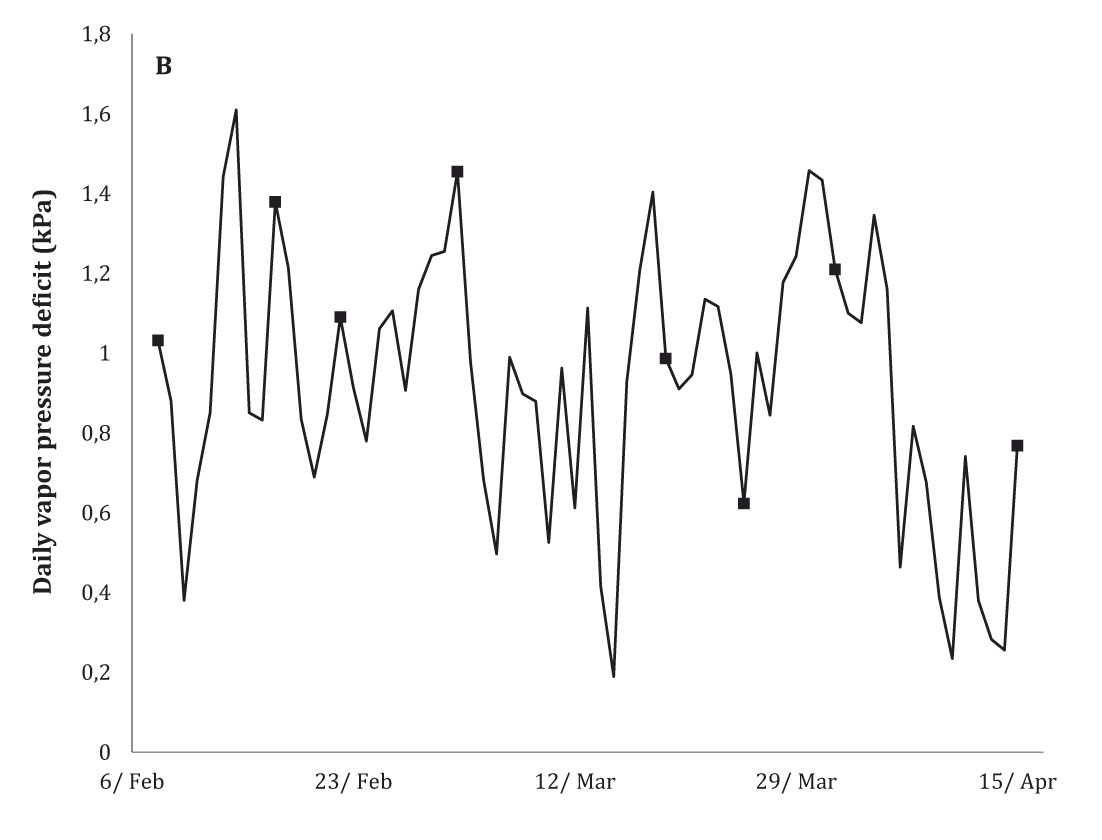Physiological and production responses of olive (Olea europaea L.) cv. Frantoio under regulated deficit irrigation on a semiarid mediterranean weather condition (Cholqui, Maipo Valley, Chile)
Keywords:
olive oil, water stress, stem water potentialAbstract
The objective of the present study was to determine the Regulated Deficit Irrigation (RDI) effect on the cv. Frantoio olive tree, under semiarid mediterranean weather condtions (8 months dry period). The trial was established in the "El Oliveto" farm (33º48' S, 71º05' W) Cholqui, Melipilla, Metropolitan Region, Chile, and considered five irrigation treatments: 100% of crop evapotranspiration (ETc) (T1), 85% ETc (T2), 75% ETc (T3), 70% ETc (T4), and 65% ETc (T5) applied between February (endocarp lignification) to May (harvest) of 2011. Periodic plant measurements were conducted, which included physiological parameters (midday stem water potential, photosynthesis and stomatal conductance) and production indices (mean fruit weight, maturity index and total production). The results obtained indicate that to a less irrigation water, the water potential, the stomatal conductance and the photosynthesis are decreased when compared to the 100% ETc. As others have quoted, it was also noticed that the less irrigation water had no effect on yield and fruit oil content.

Downloads
Published
Issue
Section
License
Aquellos autores/as que tengan publicaciones con esta revista, aceptan las Políticas Editoriales.


